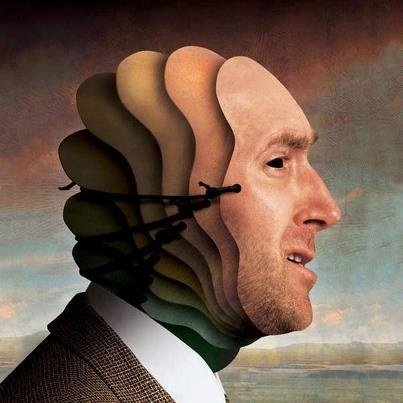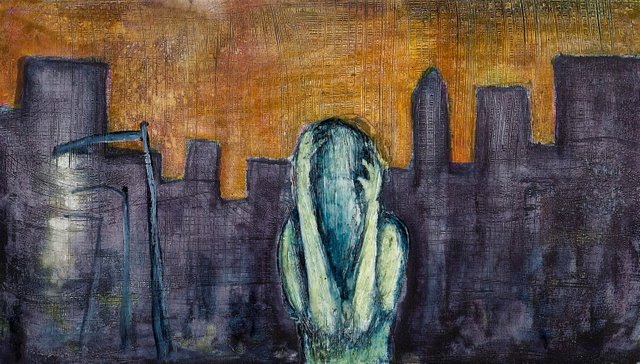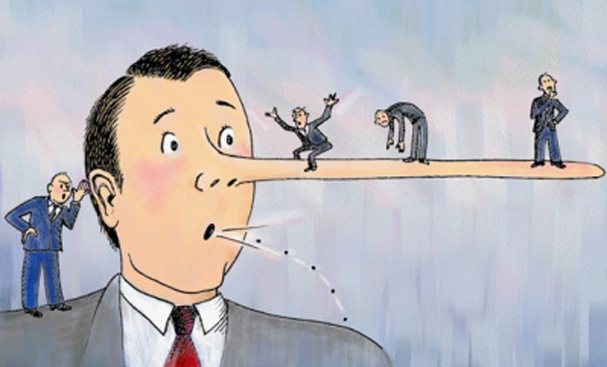The Importance Of Ethical Honesty

I was having a conversation the other day with a friend about the way I approach subjects and how in some instances it might be perceived as I am having contradictory ideas. Part of the misunderstanding stems from the fact that for one to understand my point of view, one has to examine all of my thoughts and deduct their own conclusions. One post cannot reflect objectively my entire thought process. Ethical honesty is a great part of my thought process.
What is 'ethical honesty' you might ask. I believe for one to be able to live a mentally healthy and productive life, one has to be honest with themselves about their own ethics. Sets of ethics are subjective and unique to every single one of us. Adhering to our own ethics, is the only way we can reflect on our environment without our own body, our own selves turning against us. Part of the reason mental illness permeates our culture so much is because most people live their lives in lies and hypocrisy. At some point, their own body retaliates as a form of self-defence. Christianity got this right with atonement. You walk into a booth, you admit being as asshole while knowing it, and the burden is lifted away.
[ I delve deeper into this idea in my posts about psychology if you want to examine my thoughts on this subject in detail. ]
I don't judge others for their own ethics and principles. I understand that every human is more or less a unique blend of experiences and that one way or another we all feel justified with our choices. What I often criticise is the act of ethical dishonesty based on one's own principles.

For example, let's take nepotism. Nepotism exists in our culture because it is based on social capital. We know people through our various connections (family or otherwise) and this capital can be traded much like a currency to get a favourable job position. There is nothing wrong with that. Nepotism goes even deeper since individuals that are born into favourable families can have better education and make better choices than their counterparts.
Now, if someone starts accusing others of nepotism while themselves have enjoyed it, then we have a situation of ethical dishonesty. The individual will defend their position as righteous but they will scorn others for choosing that path. Most people commit ethical dishonesty all the time.
Another instance would be someone accusing others of being 'groupies'. For example, religion is often as perceived as 'bad' due to the groupie mentality it promotes. If that person finds themselves employed in an organisation where groupie behaviour is a core principle e.g being part of an atheistic group or being employed in the government or an educational institution where specific groupie behaviours reflect to their entire group, then we have ethical dishonesty. For example, one can't possibly defend a position that they are trying to 'enlighten' the world about atheism and the ills of populous religion while investing in the collective democratic process (that created this conflict, to begin with) to make that change happen.
Our world is packed with contradictions and if one is not careful, one can be easily wasted from their own hands.
I would never criticise someone that admits that they have used nepotism and they are proud of it or that they need to belong to a group to feel important. If they just say to me 'this is how the world is mate' I would have to completely agree.

Thing is, most people don't admit being ethically dishonest because this hurts their image and career. They already lie to themselves in order to appear more ethical and honest than the rest so there is no going back. Instead, they will try to excuse themselves with a cheap defensive stance. For example, if they work in the government and you criticise them about their comfy and nepotic choice they will answer 'No I got this position because I was worth it' or 'Why is the private sector any different?'. In other words, they will try to justify their version as more righteous or make all other choices seem equally bad instead of admitting the pragmatism of their choice which is 'I enjoy working as little as possible while having a secure job leeching on others and enjoying great benefits'.
One would even say to me "Why do you care?". I believe that in order for people to lead healthy lives they need to be honest with themselves. Being honest means you accept yourself and your choices. When one is being ethically dishonest they first deceive themselves and then the ones around them. You cannot have fruitful relationships with others. It will manifest as 'bipolar disorder', anxiety, 'manic depression' heck even panic attacks. The body will retaliate because you will show it two or more contradictory paths. The person will start feeling social anxiety because they have dug themselves into so many lies and have crafted so many social masks that it becomes impossible to hold themselves together as a solid identity in front of others. The mind will try to hold it together but the body cannot lie.

The phenomenon of these so called 'disorders' has become so popular that even psychiatrists and psychologists cannot distinguish clearly between the 'disorders'. The pathology is much the same. Our society has created in a way impossible standards to adhere to and in an effort to shine through the crowd people fracture themselves in order to satisfy everyone around them. Most get lost in their own minds, considering everyone else an idiot, not being able to 'understand' their unique point of view. Enter, entitlement generation. The reality is, not even themselves can understand how and why this whole thing started. This is where the therapist comes into the scene to provide a narrative based on the individual's jumbled up account.
If the 'therapy' will work it will suggest more or less for the individual to be more 'accepting' of others, socialise with like-minded people and avoid 'toxic' opposing ideas. (They will charge you hundreds of dollars for this simple advice). More or less the advice will be along the lines of joining a cult and/or creating echo chambers of reassurance. (the meme of 'avoiding toxic people'). Surprisingly enough, this is the same place one was found before they retaliated while they tried to 'shine' through ethical dishonesty. The ethically dishonest person comes to a full circle, ready to repeat the same mistakes all over again.
[ I know people from my environment that I can predict perfectly their future choices and path in life by just following the aforementioned rhyme of thought. ]
It is extremely hard to live a life based on ethical honesty. Most people are used to hearing lies and confirmations rather than critique. This is why the auto-pilot guides us towards self-deception and ethical dishonesty. More or less it is a mechanism to fit in. In my experience, one would definitely lead a rather lonely life but those few that are going to stick around are going to be much more valuable that the general public. So to answer my own question. Why I do it? It is a process, a test if you like, in order to pick the gems out of the doomed trash. Luckily, I found a handful and I am grateful every day for having them in my life.

Great article. I have gone through some of your other work too. You have a good psychological insight of human mind and relations. Keep up the good work:).
Thank you. I prefer "anthropological". Psychological is a problematic (and limiting) definition
Anthropological then:)
Another good one.
thanx man.